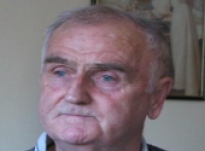Hugh - Interview 13

More about me...
Hugh also recently found out that a friend of his is very ill with heart valve disease and this has made him ‘start to think a little bit more’ about his own heart. Knowing about his friend has made him keen to learn more about his condition. He would especially like to know ‘how long it would be before it really starts getting worse’, but acknowledges that this might be impossible to find out.
The GP had referred Hugh to hospital twice for suspected heart problems, but nothing had been...
The GP had referred Hugh to hospital twice for suspected heart problems, but nothing had been...
From there, and I thought, “Well, maybe it’s good to be involved with it, really.” And, and that’s really why I responded. There’s, I’ve got quite a lot of history in the family, cousins and uncles, that have had - mainly the male section - have had heart problems. So I thought it would be a good thing to get involved in a survey and go deeper, and find out more, really.
When he first got the invitation Hugh thought it must be something everyone was invited to, until he discovered it was only happening in one area.
When he first got the invitation Hugh thought it must be something everyone was invited to, until he discovered it was only happening in one area.
I thought it was a bonus, really, to be there and to be involved, and hence I’ve gone on further to this.
Hugh was reassured that his heart valve problem was nothing serious and quite common at his age, and he feels fit. Even so, there is such a history of heart problems in his family that it makes him worry.
Hugh was reassured that his heart valve problem was nothing serious and quite common at his age, and he feels fit. Even so, there is such a history of heart problems in his family that it makes him worry.
Not really, because I’ve always, I played a lot of football up until I was about forty, and I’ve always considered myself fairly fit, and I’ve always worked, and sometimes I was working seven days a week for years. And I still go loads, still do work now, still can go on long walks and feel okay. So I suppose I’m like everybody, we think we’re pretty immune from the [laughs] the big bang, as they say. So no, I didn’t worry. Maybe if I’d - I’ve often wondered how people who’ve had a heart attack, how they cope with life after. Do they push themselves, or? Like yesterday I worked really a sort of ten-hour day, because the people are away and I’m trying to get the job done before they come back, and I was told off when I got back here that I should be doing it less, gentle, but I feel I’m okay.
Hugh doesn't like hospitals but given his family history he feels reassured that he's being monitored in a specialist centre.
Hugh doesn't like hospitals but given his family history he feels reassured that he's being monitored in a specialist centre.
Really. It, well what they said is, it’s quite normal for a person of your age or fairly normal for somebody of your age to have these leaking valve things.
Hugh wonders how long it would be before his condition needed treatment, if at all, and how that would be decided. He doesn't think he will be called back again for another scan.
Hugh wonders how long it would be before his condition needed treatment, if at all, and how that would be decided. He doesn't think he will be called back again for another scan.
I think, I don’t think so. I don’t think they, there was any sort of mention.
Hugh never used to worry about his health but now feels he has reached a 'vulnerable' stage in life. He has also had screening for prostate cancer.
Hugh never used to worry about his health but now feels he has reached a 'vulnerable' stage in life. He has also had screening for prostate cancer.
Although the local GP, who’s now retired, he had had prostate cancer, so I have done the blood tests. They do that, I think I’m due again in June. So they keep an eye on that. But it was the fact that he had had prostate cancer, so once if a GP has had it he’s going to be on the ball with you on that, I suppose, isn’t he? And they’ve all come up natural.
Taking part was reassuring, but Hugh still worries about what it means to live with two leaking heart valves.
Taking part was reassuring, but Hugh still worries about what it means to live with two leaking heart valves.
And you don’t, I don’t know how long I’ve been living with it.

